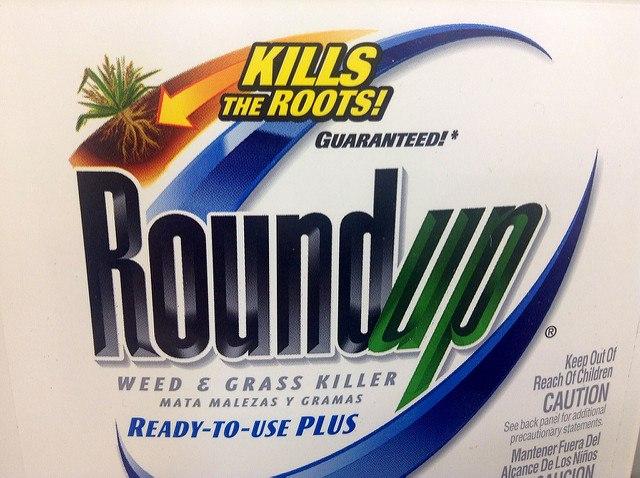
This week we saw big news in the world of Big Ag: The American GMO giant Monsanto agreed to be acquired by Bayer AG. The deal was variously reported as valued between $56 billion and $66 billion. So much has been written about these two companies that it’s hard to know where to begin in discussing the deal.
For starters, I think it’s safe to say that for a large number of people around the world, Monsanto would not be missed. While the company could be considered successful enough to be worth billions to a buyer, it also succeeded in becoming one of the most hated companies of all time. This is largely due to its penchant for producing dangerous and controversial substances, ranging from PCBs, to dioxin, Agent Orange, DDT, rBGH, polystyrene, aspartame, the glyphosate herbicide known commercially as Roundup, and the genetically-modified crops that were designed to increase its use.
Add the fact that the company made little distinction between marketing and bullying in its business practices, suing both critics and farmers in highly aggressive enforcement of its intellectual property and suppress criticism. The company also cut vast inroads into the federal government, placing its people in crucial oversight positions ranging from the FDA to the Supreme Court and leveraging those positions to strong-arm policies that were tailor-made to its liking.
Monsanto is not going away. It will simply be absorbed by Bayer, which will likely strengthen the biotechnology company. Details of the new company structure are not yet available
The buyer, Bayer AG, is a much larger and more diverse enterprise, perhaps best known for its over-the-counter healthcare products such as aspirin, Alka-Seltzer and One A Day vitamins. However, Bayer also has a sizable business in agricultural chemicals and is a huge supplier of commercial plastics. Its plastics division, Bayer Material Science (which was recently spun off and renamed Covestro), was a major supporter of the Solar Impulse program -- providing lightweight structural and insulating materials to enable the aircraft to reach its performance targets. The merger, if approved, would make the agricultural chemical division Bayer's largest.
Bayer is no stranger to controversy either. In its long history (the company was founded in 1863), it produced heroin in 1898, when it was still legal, and had strong and nefarious ties to the Nazi regime in WWII. (Its CEO publicly apologized to Elie Wiesel in 1995 for the company's involvement in the Holocaust.) Most recently, Bayer’s production of neonicotinoid pesticides -- which some linked to massive bee die-offs -- has come under fire. Not only has the company diverted attention by shifting blame to the varroa mite, which it claims is responsible for the bee deaths, but it also sued the watchdog group BUND, a German branch of Friends of the Earth, in an effort to silence criticism.
This proposed mega-deal could be the most controversial yet. Given the recent mergers between DuPont and Dow Chemical, and between Sygenta and the China National Chemical Corp., if approved the merger will reduce the number of companies controlling the inputs to the global food supply from seven down to four. This lack of diversity in seed stock will make the food system more vulnerable to diseases or other unforeseen events.
The combined Bayer-Monsanto company will own more than 30 percent of the global seed market. That means it would control, for example, the inputs for 70 percent of the U.S. cotton crop. Reduced competition will likely lead to higher prices, putting a strain on both consumers and farmers. Use of genetic engineering in foods and other crops will likely increase. Consumers will find less choices in the supermarket and innovation in areas other than those profitable to the company will likely be squashed.
Two former Justice Department officials, Maurice E. Stucke and Allen P. Grunes, claim the merger would violate anti-trust laws. Given their concerns, which mirror those cited above, the pair insists "the antitrust enforcers must not allow this merger to proceed."
More than 500,000 people already signed a petition to block the approval.
Speaking of all these proposed mergers, Food & Water Watch Executive Director Wenonah Hauter said: "The shocking consolidation in the biotech seed and agrochemical industry turns over the food system to a cabal of chemical companies that would make it even harder for farmers, consumers and communities to build a vibrant, sustainable food system."
The food industry, apparently in imitation of the banking industry, is approaching the too-big-to-fail point, when it will become too late for even the government to control their behavior, their risks, and their determination to shift the objective of the global food supply system from that of providing nutrition to that of maximizing profit. Does anyone out there, besides perhaps their major investors, actually think this will make the world a better place to live?
Image credit: Mike Mozart: Flickr Creative Commons

RP Siegel (1952-2021), was an author and inventor who shined a powerful light on numerous environmental and technological topics. His work appeared in TriplePundit, GreenBiz, Justmeans, CSRWire, Sustainable Brands, Grist, Strategy+Business, Mechanical Engineering, Design News, PolicyInnovations, Social Earth, Environmental Science, 3BL Media, ThomasNet, Huffington Post, Eniday, and engineering.com among others . He was the co-author, with Roger Saillant, of Vapor Trails, an adventure novel that shows climate change from a human perspective. RP was a professional engineer - a prolific inventor with 53 patents and President of Rain Mountain LLC a an independent product development group. RP was the winner of the 2015 Abu Dhabi Sustainability Week blogging competition. RP passed away on September 30, 2021. We here at TriplePundit will always be grateful for his insight, wit and hard work.














